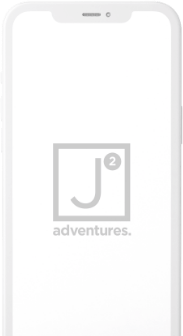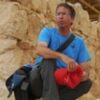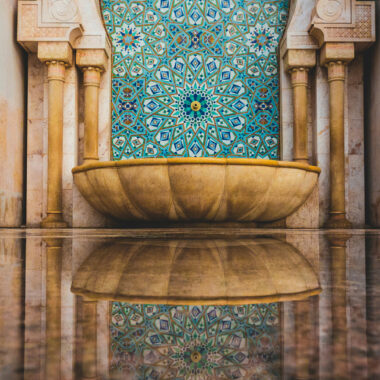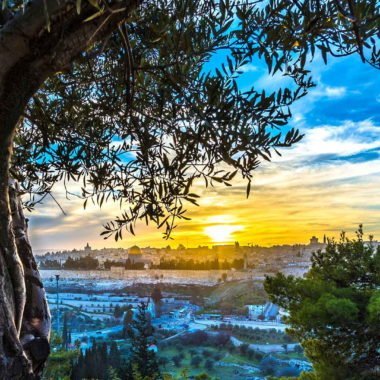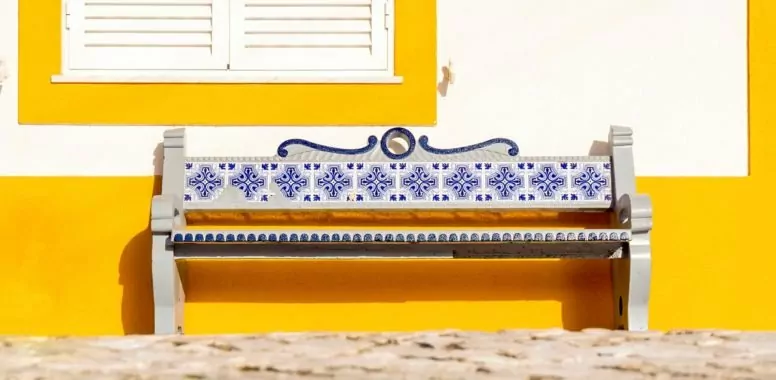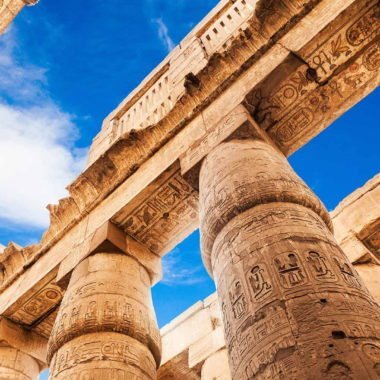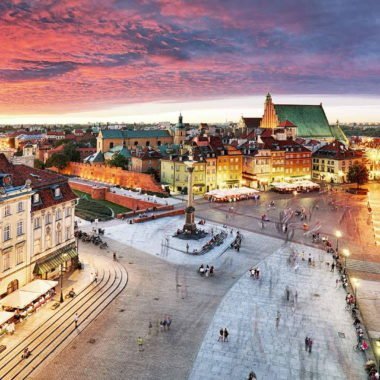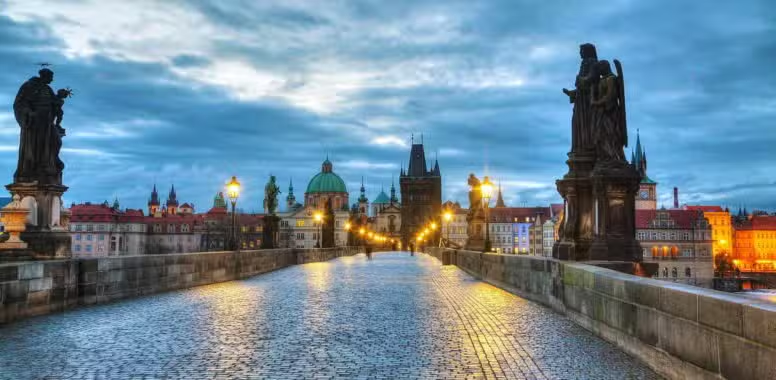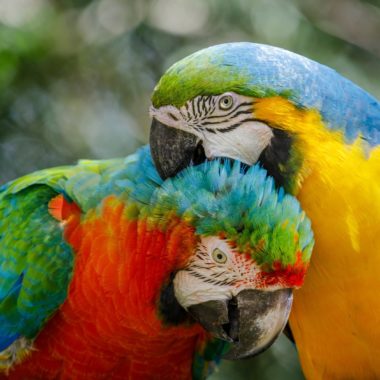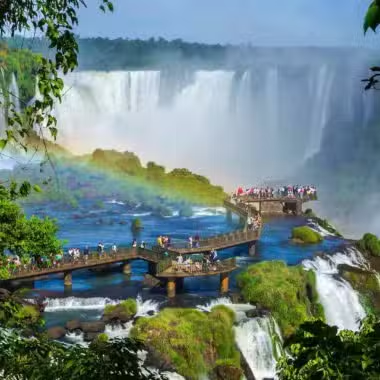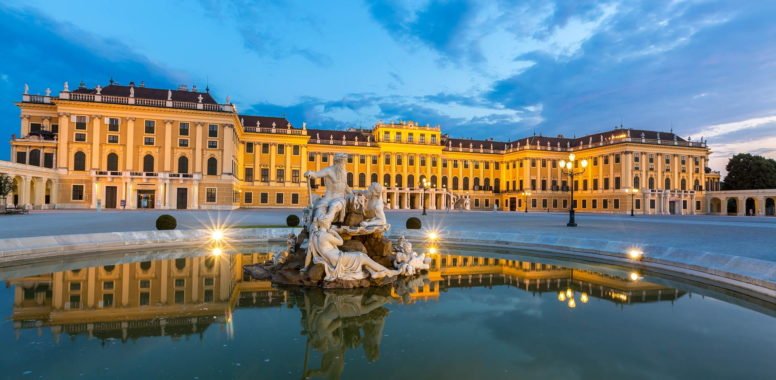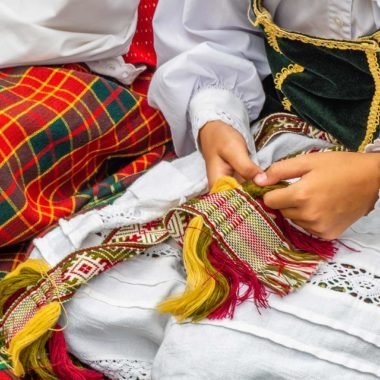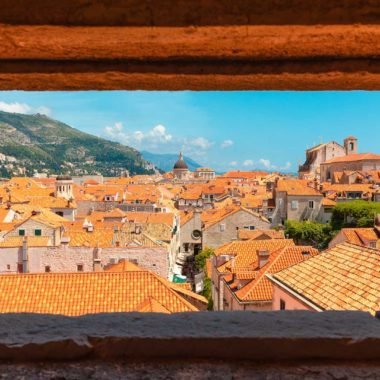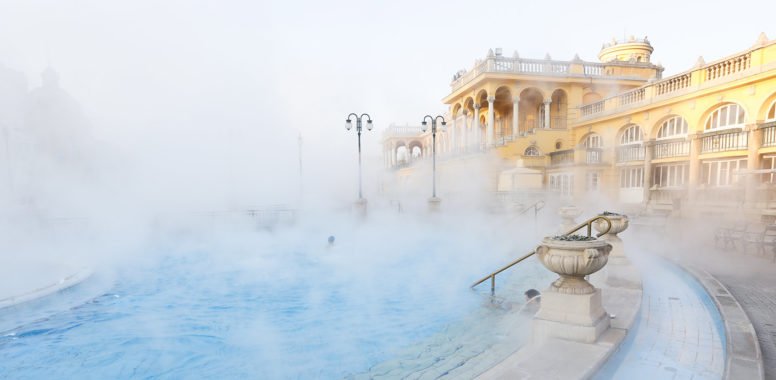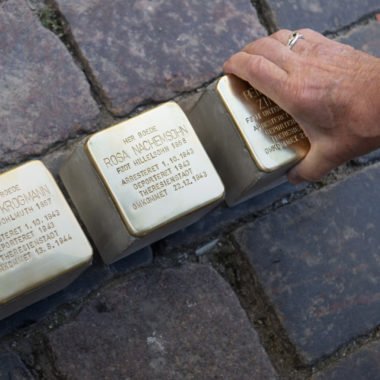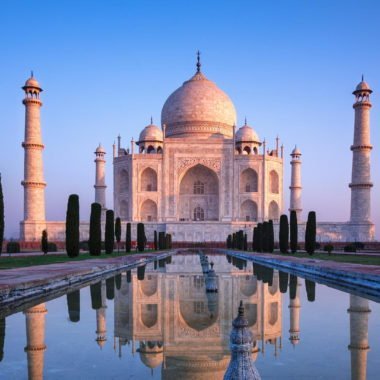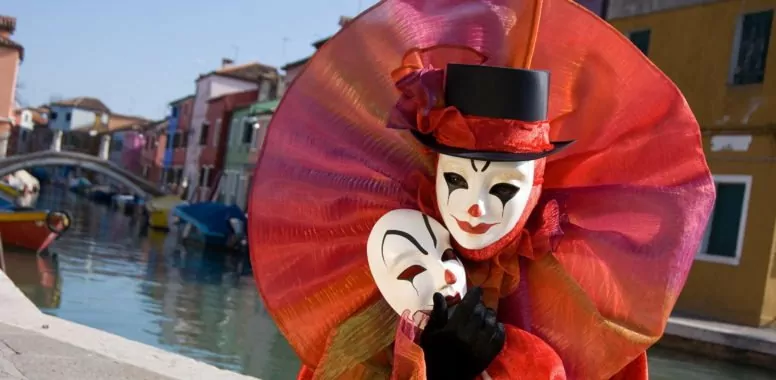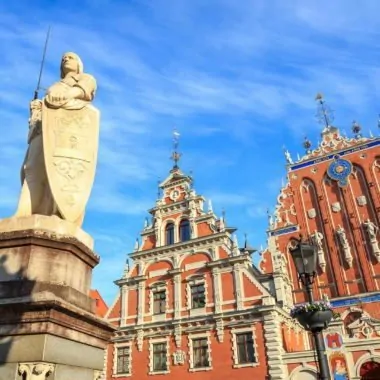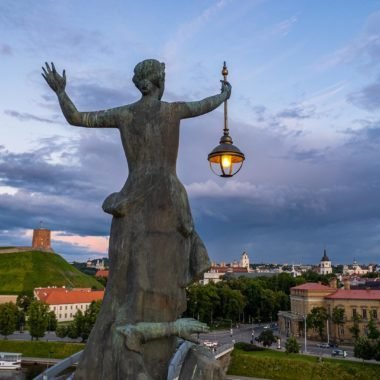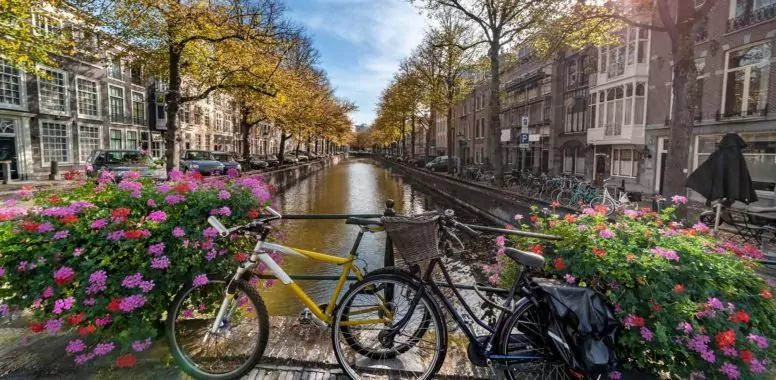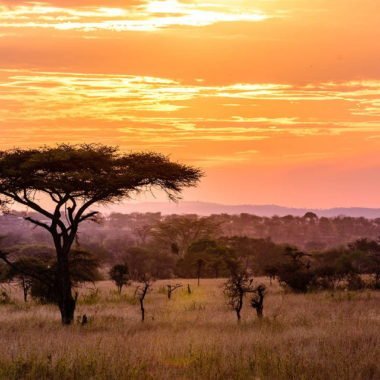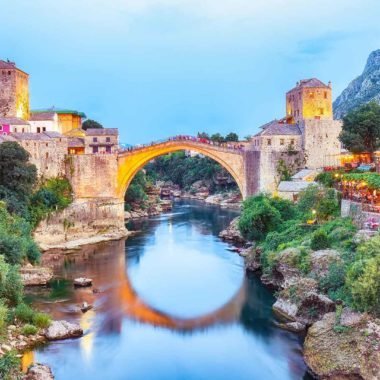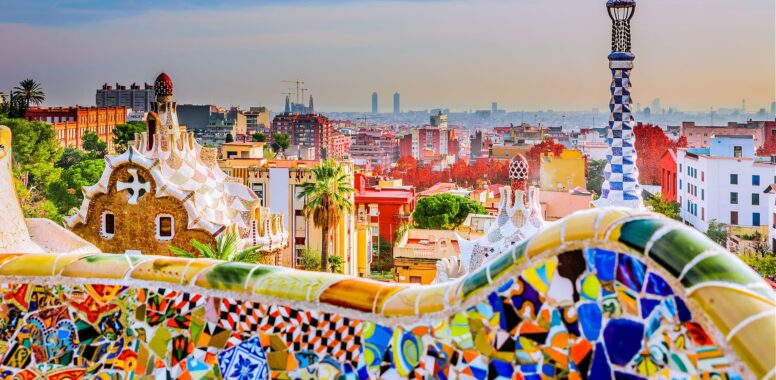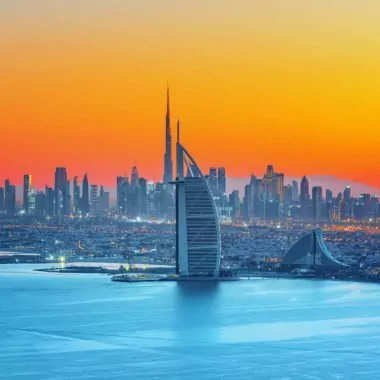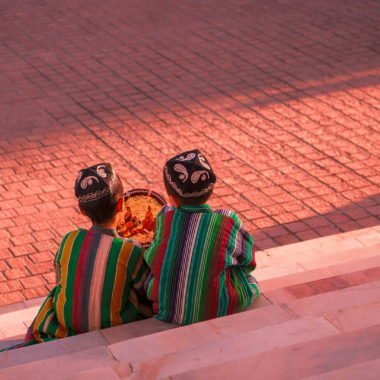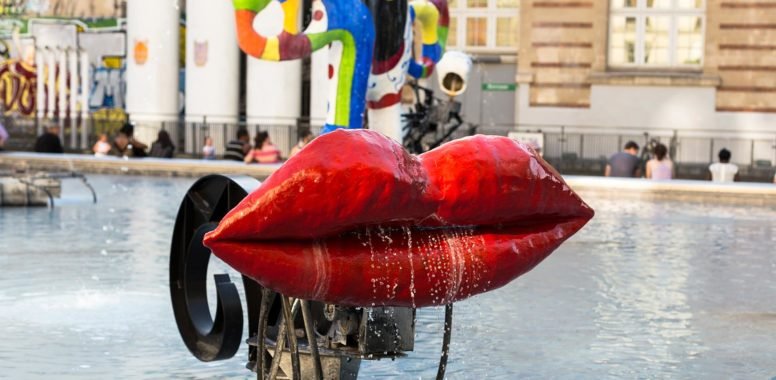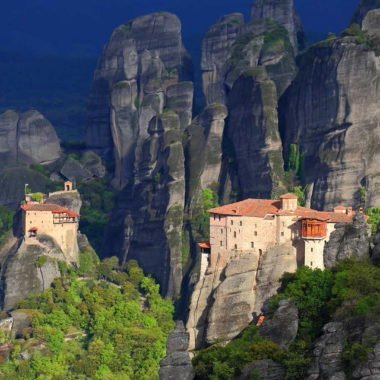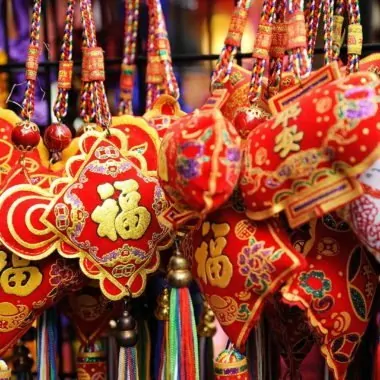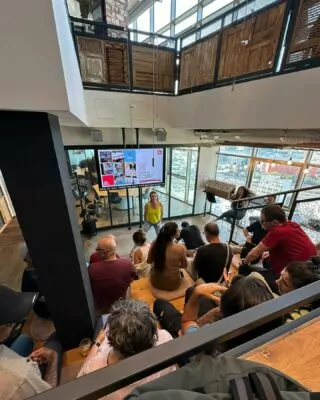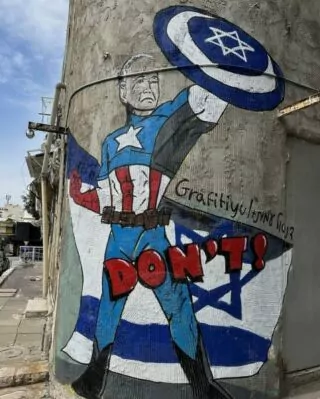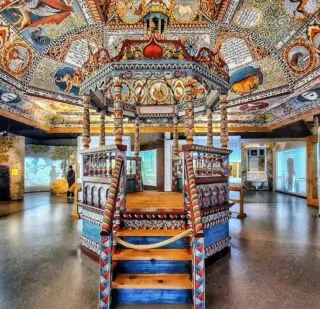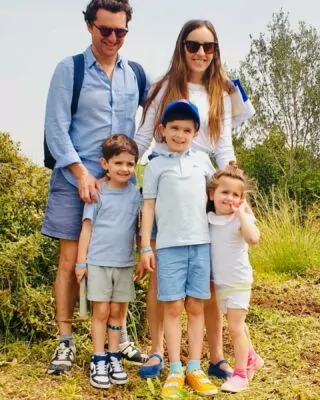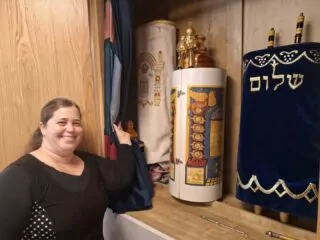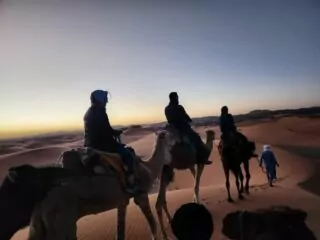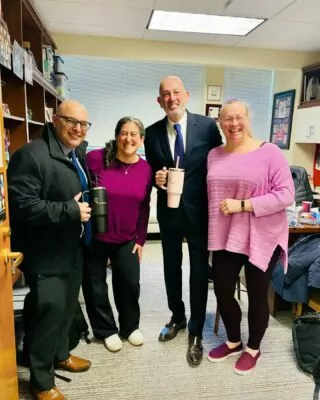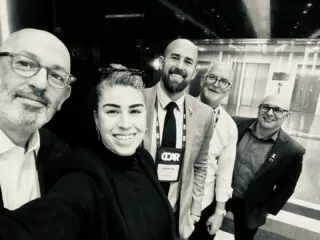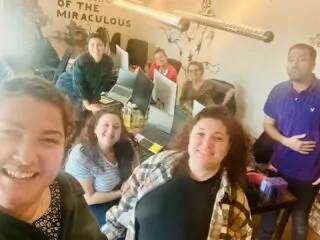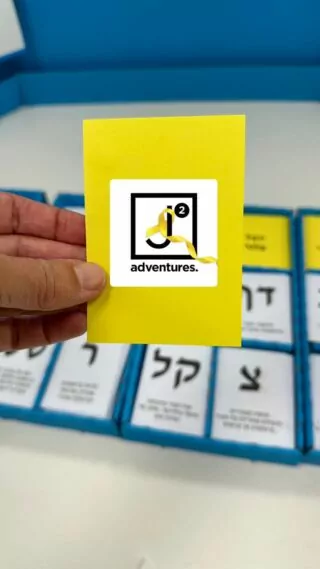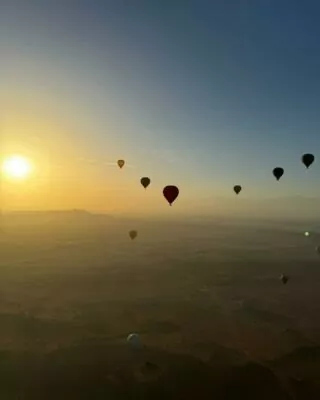YOUR journey
J² crafts journeys of inspiration, education, and Jewish connections to Israel and worldwide. We are guided by a simple but powerful concept: No two trips are the same; each experience should be personal, meaningful, and backed by superb service. Travel is not just about the places you visit, but the connections you make along the way.
Once you have registered for the trip, you can also register for the extension. Click here for details.
Registration is currently closed. To be added to the wait list, please contact Cantor Shukiar at: dshukiar@adatelohim.com.
Art & Culture
Heritage
Active
Food & Wine
Program Itinerary
- Depart the USA.
- Arrival at Berlin International Airport.
- Check into the hotel.
- Meet your tour educator who will accompany you on this journey of education and inspiration.
- Introduction to Berlin: Orientation dialogue with your tour educator.
- A Walk Through History: Experience Berlin’s extraordinary heritage and transformations on a tour of some its most famed landmarks including:
- The Brandenburg Gate: This neo-classical gate is architecturally impressive, but its real importance lies in what it reveals about Berlin and its changes. Built in the 1790s when Berlin was rising to power and locked behind the Communist side of the Berlin Wall during the Cold War, it is now Germany’s most famous symbol of reunification and freedom.
- View of the Reichstag: Explore Germany’s traumatic political past and prosperous present as we stop at the Bundestag, the German Federal Parliament. The building, set in the reconstructed Reichstag, is rich with history.
- The Holocaust Memorial is designed to provoke questions rather than provide obvious answers. For some visitors, its 2711 gray, slightly askew concrete slabs symbolize that the Holocaust is beyond understanding. Many other interpretations are possible.
- We’ll see Humboldt University, a key example of Berlin’s role as a center of learning and knowledge. It has been associated with 41 Nobel Prize winners and is considered one of the great universities of Europe.
- In Berlin, culture was destroyed as well as nourished. The Book Burning Memorial at Bebel Square marks where, on May 10, 1933, Nazi-supporting university students began a massive bonfire of “un-German” books.
- The Berlin Wall Memorial is an ideal place to examine the Cold War that divided both Berlin and the world. Situated on a one-mile strip of the original wall, it includes exhibits explaining why this was once one of the tensest places on earth.
- Festive welcome dinner at a local restaurant.
- What Was Built, What Was Lost: Our tour of the Jewish Quarter will explore the achievements and vitality of Berlin’s Jewish community. The tour will include:
- Hackescher Market: In 1671, 200 Jews fleeing persecution elsewhere in Europe were allowed to move to an area just outside Berlin’s Old City walls. We’ll see this area – which is now a hotbed of entertainment and nightlife – and discuss the development of Jewish life in Berlin.
- The New Synagogue and Centrum Judaicum: This richly ornamented synagogue, which once seated 3,000 people, is an impressive example of the size, prosperity, and confidence of Berlin’s Liberal Jewish community in the 19th century. We’ll learn how the synagogue was saved from destruction during the Kristallnacht pogrom and today is once again a center of German Jewish culture.
- The Jewish Cemetery: From the late 17th century, this was where many of Berlin’s Jews were buried. It was bulldozed by the Gestapo in 1943. We’ll view the recently restored tombstone of Moses Mendelssohn, the great philosopher, and discuss his influence on German and Jewish life and thought.
- We’ll stop outside the home of Rabbi Regina Jonas, the first woman to be ordained as a rabbi, and discuss her pioneering life, her death in Auschwitz, and the role Berlin played in reforming Judaism for a modern age.
- We’ll also visit two important reminders of German resistance to the Holocaust. The Museum of Otto Weidt’s Workshop for the Blind honors the man who risked his life during World War II to hide and protect Jewish workers in his broom and brush workshop.
- The Rosenstrasse Sculpture commemorates the successful 1943 protests against Nazi plans to deport the last remaining Jews from Berlin. The protest was led by non-Jewish women seeking to protect their Jewish spouses from persecution.
- Understanding and Unease: Explore the social, political, and cultural history of Germany’s Jews – from their 4th-century arrival until today – at the Jewish Museum Berlin, Europe’s largest Jewish museum. The tragedy of the Holocaust is integrated into its exhibitions and its extraordinary architecture. We’ll see how Daniel Libeskind’s design – with its zigzagging lines and concrete “voids” – evokes a sense of unease and absence that, along with their many achievements, is part of the German-Jewish story.
- We’ll stop at Checkpoint Charlie, the best-known crossing point between East and West Berlin during the Cold War, and the setting for countless real and fictional spy stories.
- Evening at leisure.
- Optional:
Concert at one of Berlin’s iconic locations from the music scene:- The Berlin State Opera, or Staatsoper. Enjoy a performance in its historical main hall, dating back 250 years.
- The Pierre Boulez Saal, and its 360º modular hall to experience music outside the norms.
- The Philharmonie Berlin, designed by architect Hans Scharoun. This concert hall is home to the legendary Berliner Philharmoniker, ranked among the very best orchestras in the world.
- The Komische Oper Berlin, performing contemporary, accessible musical theater. It also showcases works that had previously been suppressed or forgotten, with a special focus on censured composers under Nazi rule.
- Berlin’s Jews Today: Who Are They? What Do They Believe? The city where the Holocaust was planned now hosts Europe’s fastest -growing Jewish population. Talk with Jewish educator Dr. Sandra Anusiewicz-Baer about the identities, achievements, and dilemmas of this community. Dr. Anusiewicz-Baer is the coordinator of Zacharias Frankel College, Berlin’s Conservative/Masorti rabbinical seminary.
- “Jews May No Longer Own Pets”: In a city of Holocaust memorials, the Places of Remembrance is perhaps the most controversial. Hung, seemingly randomly, on street lampposts in the Bavarian Quarter are 80 signs that highlight anti-Jewish laws and regulations established by the Nazis. These signs push passers-by to contemplate the almost-forgotten history of this neighborhood, which was once home to prominent Jewish intellectuals, including Albert Einstein and Hannah Arendt.
- The Bureaucracy of Evil: in January 1942, German officials gathered at the Wannsee Villa to arrange and streamline the “Final Solution.” Visit the lovely rooms – which are now a museum and memorial with exhibitions, films, and original documentation – where these monstrous discussions were held. We’ll discuss how these brief, essentially bureaucratic, meetings were a key step toward genocide.
- Lunch at a local restaurant.
- The Path to Auschwitz: Visit Gleis 17, the railway track in Grunewald station from which many Berlin Jews were deported to the death camps and ghettos in the East. This quiet, powerful memorial is a chance to contemplate the infrastructure, including the German train system, of the Holocaust and to commemorate the people caught up in its inhumanity.
- Looking Backwards and Looking Forward: with your tour educator.
- Return to the hotel with free time to refresh and prepare for Shabbat.
- Kabbalat Shabbat service at a local synagogue.
- Shabbat dinner at a restaurant with guests from the local community.
- There’s no end to the exciting ways to spend your free day in Berlin. It’s a big, sprawling city full of culture and art, so a little pre-planning comes in handy. Here are just a few ideas:
- Berlin has a staggering 175 museums. Many of them are internationally acclaimed, including the five archeological and art museums that make up Museum Island.
- Another popular option is the Gemaeldegalerie. It has one of the world’s best collections of European paintings from the 13th to 18th centuries, including many important German works.
- The Neue Nationalgalerie is a major museum of modern art. The greats of 20th-century painting and sculpture are represented here, including important pieces by the German Expressionists. The Hamburger Bahnhof is another key spot for contemporary art.
- If shopping is your thing, Kurfürstendamm is your place. Known locally as the Ku'damm, it’s a 3-mile-long boulevard of department stores and big-name brands.
- Spend a little time in one of the city’s parks. The Tiergarten is one of the largest and most popular. Its 520 acres include markets, monuments, playgrounds, and numerous places for cycling, jogging, or just kicking back.
- On the southern edge of the Tiergarten is the Berlin Zoo, home to the world’s largest variety of species including giant pandas, hippos, and polar bears.
- The Museum fur Naturkunde is an acclaimed natural history museum. It includes the world’s largest mounted dinosaur.
- Despite its name, the East Side Gallery is actually the longest stretch of the Berlin Wall still in existence. It was covered with murals by artists in the thrilling days after the Wall came down. Look out for the famous graffiti painting of the Soviet and East German leaders Brezhnev and Honecker locked in a “socialist fraternal kiss.”
- The DDR Museum, with its interactive exhibitions and high-tech reconstructions, lets you experience daily life behind the Berlin Wall from its gloomy towers and awful automobiles to the authoritarian education and the Stasi, the ubiquitous security agency.
- Ben Kodesh Lechol: Participate in a Havdalah ceremony.
- Exclusive evening program with the Hebrew Choir of Berlin, comprised of Jewish and Christian performers and led by Israeli conductor Ohad Stollarz. The performance will be followed by a lively dinner with leaders of the choir.
- Check out of the hotel.
- Drive south from Berlin to Dresden. Dresden’s historic city center was destroyed in 1945 by massive US and British carpet bombing. Twenty-five thousand Germans, mainly civilians, were killed. During our visit, we’ll explore why the bombing, the subject of Kurt Vonnegut’s novel Slaughterhouse Five, remains a controversial subject in Germany and internationally.
- Raised from the Rubble: Examine the extraordinary post-war reconstruction of Dresden. There was much to reconstruct, as from the 18th century onward, Dresden had been a European center of art and architecture. The Zwinger was a palace made to rival Louis XIV’s residence in Versailles. The Fraunerkirche church was the beloved symbol of the city. The Semper was one of the world’s great opera houses. All were levelled during the bombing of 1945, but as we’ll see, they have been exactly and beautifully rebuilt, sometimes using the rubble from the original buildings.
- The Jews of Dresden: Examine the Jewish history of Dresden, which included medieval massacres, followed by flourishing in the 19th century, and devastation during the Holocaust. At the Jewish Community Center, hear how Jews, including immigrants from the FSU, are reestablishing communal life in Dresden. Visit the New Synagogue which, when it was established in 2001, became the first synagogue built in eastern Germany since the war.
- Depart Dresden and cross the border to the Czech Republic.
- Arrive in Prague and check into the hotel.
- Evening guided walk to the Old Town Square, one of the most breathtakingly beautiful public spaces of Europe. Its been Prague’s main marketplace since the 10th century, and many of its glorious buildings date from the 14th century. We’ll see its Astronomical Clock, a symbol of the city, and explore Prague’s Art Nouveau architecture. We’ll find out, at the huge monument honoring Jan Hus, why this 14th century “heretic” who was burned at the stake is still considered a Czech hero.
- Evening at leisure.
- In the Ghetto: Explore the sometimes glorious, sometimes tragic, past of Prague’s Jews with a visit to the Jewish Ghetto. From the 13th century, Jews could live only within the ghetto’s walls. In the 18th century, the ghetto was abolished and much of the area was destroyed. Nonetheless, important sites were safeguarded, making this perhaps the best area in Europe to experience how Jews once lived. Our visit will include:
- The Maisel Synagogue: The early 16th century was a golden age for Prague’s Jews, and the ghetto became famed for its intellectual and economic achievements. This synagogue was built to serve the growing Jewish population.
- The Pinkas Synagogue: Built in 1535, this fine synagogue is more evidence of the community’s prosperity. Today, it also serves as a poignant memorial to a darker period for Czech Jews with tributes to victims of the Holocaust and an exhibition of art produced by children in the Terezin camp just outside Prague.
- The Old Jewish Cemetery: For 300 years, the ghetto’s Jews were buried here. This cemetery is a place to mourn but also to celebrate the diversity and achievements of Prague’s Jews. The Talmudic scholar and mystic Rabbi Judah Loew, known as the Maharal, is buried here alongside the 16th -century scientist David Gans and the Gershom family, pioneers of printing.
- The Spanish Synagogue: This golden synagogue provides a glimpse into Jewish life after the ghetto walls came down. This stunning synagogue was built in 1868 in the former ghetto area by Prague Jews seeking a more reformed style of prayer.
- The Altneushul: Europe’s oldest synagogue is a treasure trove of stories of golems and great rabbis. Find out why a synagogue built in 1250 was originally named the New Synagogue and is now known as the Old-New Synagogue.
- The Golden City: Make your way through the Old Town and cross the famous Charles Bridge. Don’t Judge a Town by Its Name: It may be called the Lesser Town but it’s hard to imagine a more charming area with its Baroque architecture.
- Remainder of the afternoon at leisure: Prague provides more than its fair share of beautiful spots, culture, and history to enjoy during your free time. Here are just a few recommendations:
- Take the funicular or walk up Petřín Hill, a huge park with great views of the city. While you’re up there, relax in the Rose Garden, enjoy some family fun in the Mirror Maze, or climb the 299 steps to the top of lookout tower.
- Kampa and Letna Parks are also vast parks perfect for walks, lunch, and relaxation.
- The Franz Kafka Museum examines the relationship between the writer and his home city. It includes first editions of his works, photographs, original letters, and audiovisual exhibits.
- The Czechs brew better beer than virtually anywhere on the globe. Join the locals for a drop in the many bars, beer gardens, and restaurants around the city or see how it’s done at the Strahov Monastic Brewery. Cheers!
- Attend a classical music performance at the Spanish Synagogue.
- We’ll make the 45-mile drive from Prague to Terezin (Theresienstadt), the town that was part of humanity’s ugliest process. We’ll visit the ghetto-camp established here during World War II where over 100,000 thousand Jews were worked to death or sent to extermination camps in the East.
- Our visit to Terezin will include:
- Part of a Terrible Process: Explore the Historical Exhibition which explains the history of the camp and its role in Hitler’s Final Solution.
- Truth and Lies: We’ll also see the chilling propaganda movies made by the Nazis which were designed to convince the world that Terezin was a spa town and retirement center for elderly Jews rather than a death-ridden way station to the extermination camps.
- Day-to-Day Devastation: Glimpse the brutal realities of daily life in Terezin with a reconstruction of the overcrowded dormitory and other parts of the camp complex. Here, we’ll understand how so many Jews died in this place of malnutrition and disease.
- Resistance Through Culture: Many prominent cultural figures were imprisoned in Terezin and they helped create in the camp, despite the constant threat of deportation and death, a remarkable cultural life. Children were educated, including in art, and we will see the remarkable pictures they created. Professors gave lectures, a lending library of 60,000 books was maintained, and concerts and performances were given. We’ll visit exhibitions on art, music, literature, and theater in the camp, each of which provides insights into the determination of Jews in Terezin to maintain their humanity and creativity.
- “Despite All This, We Have Not Forgotten YOUR Name”: Despite the brutalities in Terezin, somehow faith was not destroyed. Visit the Hidden Synagogue that an inmate, Artur Berlanger, created out of a tiny storage space. A skilled artist, we’ll see the Jewish prayers and symbols that he and others painted on the walls, as they built a secret sanctuary of holiness.
- Paying Tribute: Around 140,000 Jews were transferred to Terezin. Over 33,000 died in the camp itself. We’ll reflect on this loss at the cemetery where they were buried and at the crematorium. Our visit to Terezin will conclude with a memorial service, where we’ll remember those who died here as well as the more than 80,000 Jews who were sent to be killed in Auschwitz and elsewhere in the east.
- Music and Memory: Join together to play music at Terezin.
- Return to Prague and spend the remainder of the day at leisure, with the opportunity to explore the city on your own. Some recommendations:
- Popular places for Czech and European art include the massive National Gallery including its Veltzni Palac wing, the Museum Kampa, the Galerie Rudolfinim, and the Dox Center for Contemporary Art.
- The Prague Zoo is one of the world’s best.
- The Museum of Communism: Explore what life was like in Communist Czechoslovakia from the media and education to Stalinist brutality and the Velvet Revolution.
- Prague is a city of culture and music. Check out the options at the National Theater, the State Opera House, or the Rudolfinum, known as home to the Czech Philharmonic Orchestra and keep an eye and ear out for the many concerts held in local churches.
- Evening at leisure, with the possibility to enjoy a performance of Black Light Theatre, take a cruise on the Vltava River, or see a concert on your own.
- Depart Prague and drive to Rakovnik.
- Guided visit of Rakovnik, where the Jewish community dated back to the 17th century, until World War II. Our tour of Rakovnik’s Jewish Heritage will include:
- The Jewish Cemetery.
- The Baroque-style Synagogue of Rakovnik, which is now used as a concert hall. The women’s gallery and the adjoining community house now host an art gallery.
- Return to Prague.
- The Golden City: Experience Prague’s historic center on a tour of the Castle District. This UNESCO World Heritage Site is a haven of beauty, culture, and history. Highlights include:
- A Place of Power: Prague Castle is the world’s largest castle and has been, since the 9th century, the glorious home for rulers from kings of Bohemia to the current Czech president.
- The City of 100 Spires: Many of these rulers were buried at St. Vitus Cathedral. Visit this great Gothic structure and ask why one of Europe’s least religious countries has so many remarkable churches.
- Golden Lane: Ordinary families also lived in the Castle District. Visit Golden Lane, with its homes where palace guards, goldsmiths, and, or so the story goes, alchemists once lived.
- A Glimpse of Mr. Kafka: Culture is everywhere in Prague. We’ll stop by 22 Golden Lane, the home of Franz Kafka.
- Final Thoughts and Feelings: Farewell dinner and group reflection at a restaurant.
- Check out of the hotel.
- Departure flight to the USA, arriving the same day.
RATES & LODGING
Cost of accommodations for pre & post nights including breakfast and all taxes:
-BERLIN: COURTYARD BY MARRIOTT CITY CENTER $225,- per night per double occupancy room, $210,- per night per single occupancy room.
-PRAGUE: CENTURY OLD TOWN $210,- per night per double occupancy room, $190,- per night per single occupancy room.
*All rates are subject to availability. Registration closed
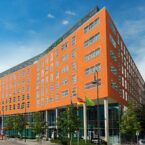
Berlin: Courtyard by Marriott City Center
- Nights: 4
- Room Category: Deluxe
- Hotel Website
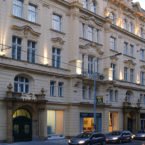
Prague: Century Old Town
- Nights: 4
- Room Category: Superior
- Hotel Website
What to expect
- 8 nights' accommodations.
- 7 days of touring with a tour educator and local guides, in a luxury, air-conditioned bus.
- Daily breakfast, 2 lunches & 4 dinners.
- The J² adventures App available on the App Store & on Google Play (active 7 days before your departure and throughout your trip).
- Porterage at the hotels.
- All site entrance fees & program fees as per your final program.
- Credit card fees.
- Airport transfers.
- Tickets for evening options on Day 3 in Berlin.
- Gratuities are excluded. For groups of 20 and more participants traveling to Central Europe: We recommend the following guidelines for tipping (amounts are in US dollars): Jewish Tour Educator: $12 | Local Guide: $10 | Driver: $5. Amounts are per day per person.
- Flights to & from Europe.
- COVID related expenses, including tests.
- Evening transportation when dinner is not included.
- Amendments to the program: In the event that any sites, programs or meals etc. are added to the program, an additional fee may be required.
- Personal extras: Items of personal nature such as laundry, wines, mineral water, beverages, coffee, tea, food other than the table d’hotel menu, passport and visa fees, insurance, and foreign port taxes, unless otherwise specified.
- US and foreign airport taxes, Q fuel surcharge and border taxes when applicable.
- Please review our terms & conditions (T&C’s) or request that we send you our full T&C’s. Until you do that, here is the small print, and other stuff you may want to know:
- Validity | All prices quoted are based on exchange rates as of the proposal date and are subject to change without notice. Rates are per person and are based on shared twin room occupancy.
- How to Make a Reservation | The quickest way to make a reservation is to register online or contact us by email. We accept VISA, MasterCard, and American Express credit cards. A non-refundable deposit is required in order to complete the registration process.
- For any assistance with this registration process or other trip-related queries, please email Customer Care: customercare@j2adventures.com.
- Payments | The balance of your payment is due 90 days before your trip begins, or as specified in your invoice. You will receive an email reminder 2 weeks before this date. Various payment options are available as follows:
- Credit card | We accept Visa, Mastercard and American Express. Please check with your credit card provider regarding international processing fees. We are unable to process payments of over $1,000 over the phone. Please submit payment online via a credit card or by wiring funds via your bank.
- Domestic bank wire transfer | Payment should be wired in the same currency that is listed on your invoice. Please add the name of your group or invoice number as a reference and forward a copy of the transfer receipt by email. The bank transfer should clearly state the beneficiary’s name on the wire transfer.
- J² Adventures reserves the right to automatically cancel your reservation on that date and it may be subject to reconfirmation should the final payment not be received.
- Cancelation Policy | All cancelations need to be made in writing. The cancelation fee depends on the date when we receive written notification of your request to cancel your booking. Please note that the deposit is non-refundable.
- Cancelation fees | Cancelations made before July 8th 2024 incur the loss of the deposit. Cancelations made from July 9th 2024 to 46 days prior to departure incur the loss of 50% of the full trip cost. Cancelations made 45 days or less prior to the departure incur the loss of 100% of the full trip cost.
- Cancelation fees may also include: Hotel or supplier cancelation fees. J² Adventures reserves the right to adjust its terms of payment, including cancelation policies and initial deposits.
DISCOVER NEW WORLDS.
JEWISH JOURNEYS.
A family vacation to Israel. An adventure of a lifetime traveling with friends to Morocco. A trip to Poland or Portugal with your community. What do these trips have in common? No matter where you go, you will come back with a fresh perspective and appreciation of the place you visited as well as a heightened awareness of your identity as part of the global Jewish community.
J2 STUFF.
We have everything you need to know before you go. Check out our Instagram my_j2adventures for cool updates and interesting tidbits.
The J2 App
available on the App Store & on Google Play.
